Search the Special Collections and Archives Portal
Search Results

Aerial photograph of the Las Vegas Hilton from the north (Las Vegas), circa 1976
Date
Archival Collection
Description
Aerial view of the Hilton from the north after the completion of the east tower. The International Hotel was sold in 1970 and renamed the Las Vegas Hilton in 1971.
Site Name: International Hotel
Address: 3000 Paradise Road
Image

Photograph of the taxi line at the Las Vegas Hilton, circa 1979
Date
Archival Collection
Description
Taxi line in front of the Las Vegas Hilton. The International Hotel was sold in 1970 and renamed the Las Vegas Hilton in 1971.
Site Name: International Hotel
Address: 3000 Paradise Road
Image
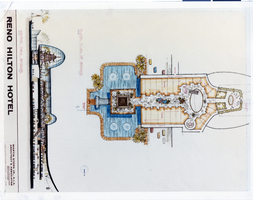
Photograph of a rendering of the Reno Hilton Bazaar floor plan (Reno, Nev.), circa 1974
Date
Archival Collection
Description
Artist's concept of the floorplan for the bazaar area of the proposed Reno Hilton. Berton Charles Severson, architect; Brian Walter Webb, architect.
Site Name: Reno Hilton
Address: 2500 East Second St.
Image
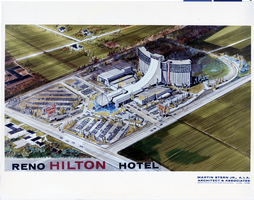
Photograph of a rendering of an aerial view of the Reno Hilton complex (Reno, Nev.), circa 1974
Date
Archival Collection
Description
Artist's conception of the proposed Reno Hilton complex.
Site Name: Reno Hilton
Address: 2500 East Second St.
Image
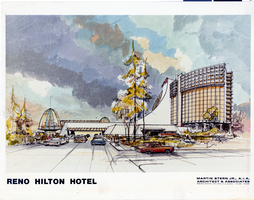
Photograph of a rendering of the side view of the Reno Hilton (Reno, Nev.), circa 1974
Date
Archival Collection
Description
Artist's conception of the side view of the proposed Reno Hilton including the porte-cochère.
Site Name: Reno Hilton
Address: 2500 East Second St.
Image
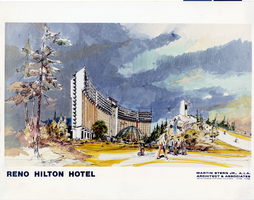
Photograph of a rendering of the back side of the Reno Hilton (Reno, Nev.), circa 1974
Date
Archival Collection
Description
Artist's conception of the back side of the proposed Reno Hilton.
Site Name: Reno Hilton
Address: 2500 East Second St.
Image
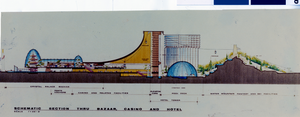
Photograph of a rendering of the side view of the Reno Hilton Bazaar (Reno, Nev.), circa 1974
Date
Archival Collection
Description
Artist's conception of the side view of the bazaar of the proposed Reno Hilton.
Site Name: Reno Hilton
Address: 2500 East Second St.
Image
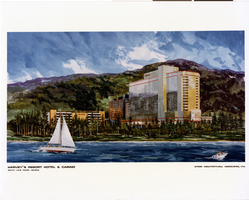
Photograph of a rendering of Harvey's Lake Tahoe (Stateline, Nev.) depicting Lake Tower, mid 1980s
Date
Archival Collection
Description
Artist's conception of the proposed Lake Tower addition that was built in 1987 for Harvey's Lake Tahoe.
Site Name: Harvey's Lake Tahoe
Address: US Highway 50, Stateline, NV
Image
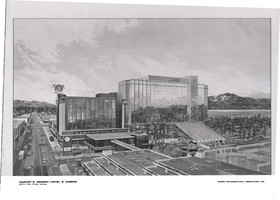
Film negative, artist's conception of the Harvey's Lake Tahoe expansion, Stateline, NV, circa 1985
Date
Archival Collection
Description
View from the north of the proposed expansion of Harvey's Lake Tahoe. Inverted negative film transparency.
Site Name: Harvey's Lake Tahoe
Address: Stateline; Douglas County; Nevada
Image
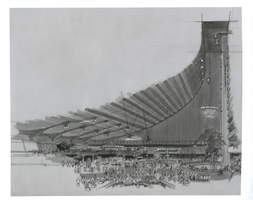
Film negative, artist's rendering of the Reno Hilton bazaar interior (Reno, Nev.), circa 1974
Date
Archival Collection
Description
Artist's conception of the interior of the bazaar area of the proposed Reno Hilton. Inverted negative film transparency.
Site Name: Reno Hilton
Address: 2500 East Second St.
Image
